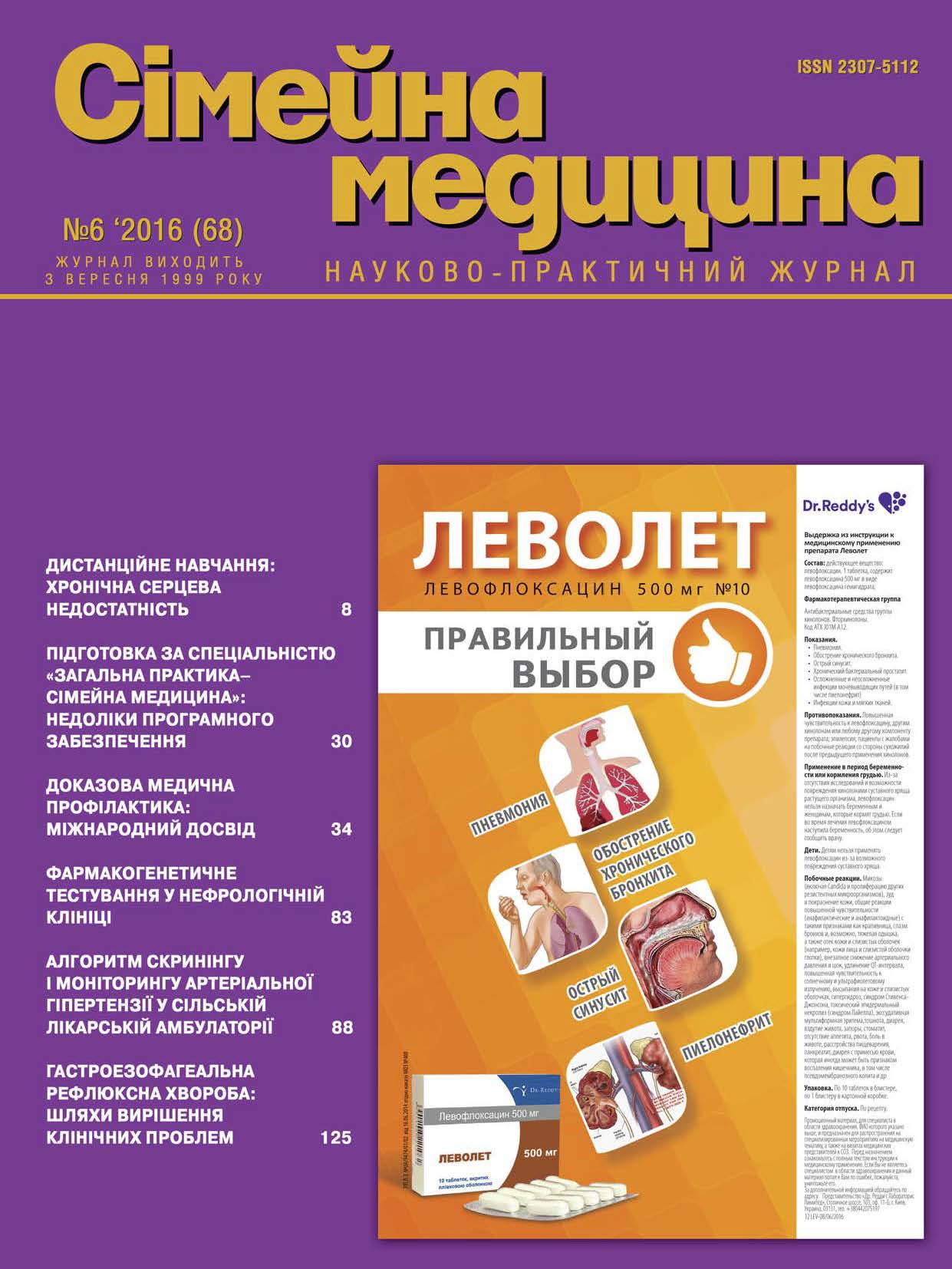Фармакогенетичне тестування у нефрологічній клініці
##plugins.themes.bootstrap3.article.main##
Анотація
У практичній нефрології під час підбору антигіпертензивних препаратів доцільно спиратися на фармакогенетичні тести та індивідуальну переносимість. Антигіпертензивні препарати першої лінії піддаються метаболізму через різні ізоформи CYP (CYP2D6, CYP2C9, CYP2C19 і CYP3A4/5). Ці ізоформи є найбільш значущими для пацієнта в реакції відповіді на лікарський препарат. З клінічної точки зору важливим є встановлення повільних метаболізаторiв (poor metabolism, PM), тому що саме для них необхідно використовувати інші дози антигіпертензивних препаратів, що відрізняються від стандартних.
##plugins.themes.bootstrap3.article.details##

Ця робота ліцензується відповідно до Creative Commons Attribution 4.0 International License.
Автори зберігають авторське право, а також надають журналу право першого опублікування оригінальних наукових статей на умовах ліцензії Creative Commons Attribution 4.0 International License, що дозволяє іншим розповсюджувати роботу з визнанням авторства твору та першої публікації в цьому журналі.
Посилання
Kidney Disease: Improving Global Outcomes (KDIGO) CKD Work Group. KDIGO 2012 Clinical Practice Guideline for the Evaluation and Management of Chronic Kidney Disease. Kidney inter., Suppl. 2013;3:1-150.
Grassi G. Sympathetic overdrive in hypertension: clinical and therapeutic relevance. The e-journal of the ESC Council for Cardiology Practice. – Vol. 13, № 36–24 Nov 2015.
Ivanov D. Почки. Нирки. Kidneys. – 2016, 1(16). – Р. 16.
Turner S.T., Schwartz G.L., Chapman A.B. et al. Antihypertensive pharmacogenetics: getting the right drug into the right patient. J Hypertension 2001;19: 1-11.
Cacabelos R (2012) The Metabolomic Paradigm of Pharmacogenomics in Complex Disorders. Metabolomics 2:e119.
International Consortium for Blood Pressure Genome;Wide Association Studies et al, Genetic variants in novel pathways infl uence blood pressure and cardiovascular disease risk. // Nature. – 2011. – V. 478. – P. 103-9.
Schwartz GL, Turner ST (2004) Pharmacogenetics of antihypertensive drug responses. Am J Pharmacogenomics 4:151-160.
Kirchheiner J, Seeringer A (2007) Clinical implications of pharmacogenetics of cytochrome P450 drug metabolizing enzymes. Biochim Biophys Acta 1770: 489-494.
Flockhart DA, Tanus;Santos JE (2002) Implications of cytochrome P450 interactions when prescribing medication for hypertension. Arch Intern Med 162: 405-412.
Ingelman-Sundberg M (2004) Pharmacogenetics of cytochrome P450 and its applications in drug therapy: the past, present and future. Trends Pharmacol Sci 25: 193-200.
Kreutz R (2004) Pharmacogenetics of antihypertensive drug response. Curr Hypertens Rep 6: 15-20.
Cacabelos R (Ed) (2012) World guide for drug use and pharmacogenomics. EuroEspes Publishing, Corunna.
Höcht C, Bertera FM, Mayer MA, Taira CA (2010) Issues in drug metabolism of major antihypertensive drugs: beta-blockers, calcium channel antagonists and angiotensin receptor blockers. Expert Opin Drug Metab Toxicol 6(2):199-211.
Siest G, Jeannesson E, Visvikis-Siest S (2007) Enzymes and pharmacogenetics of cardiovascular drugs. Clin Chim Acta 381: 26-31.
Rodríguez Arcas MJ, García-Jiménez E, Martínez-Martínez F, Conesa-Zamora P (2011) Role of CYP450 in pharmacokinetics and pharmacogenetics of antihypertensive drugs. Farm Hosp 35: 84-92.
Torrellas C., Carril J.C., Cacabelos R. Benefits of Pharmacogenetics in the Management of Hypertension. J Pharmacogenomics Pharmacoproteomics 2014, 5:1–7.
http://www.health-medix.com/articles/misteztvo/2009-03-24/7-14.pdf
Polimanti R, Iorio A., Piacentini S. et al. Human pharmacogenomic variation of antihypertensive drugs: from population genetics to personalized medicine. Pharmacogenomics. 2014; 15(2): 157-67.





